Meet the Recently Announced 2021 National Book Award Winners & Runners-Up
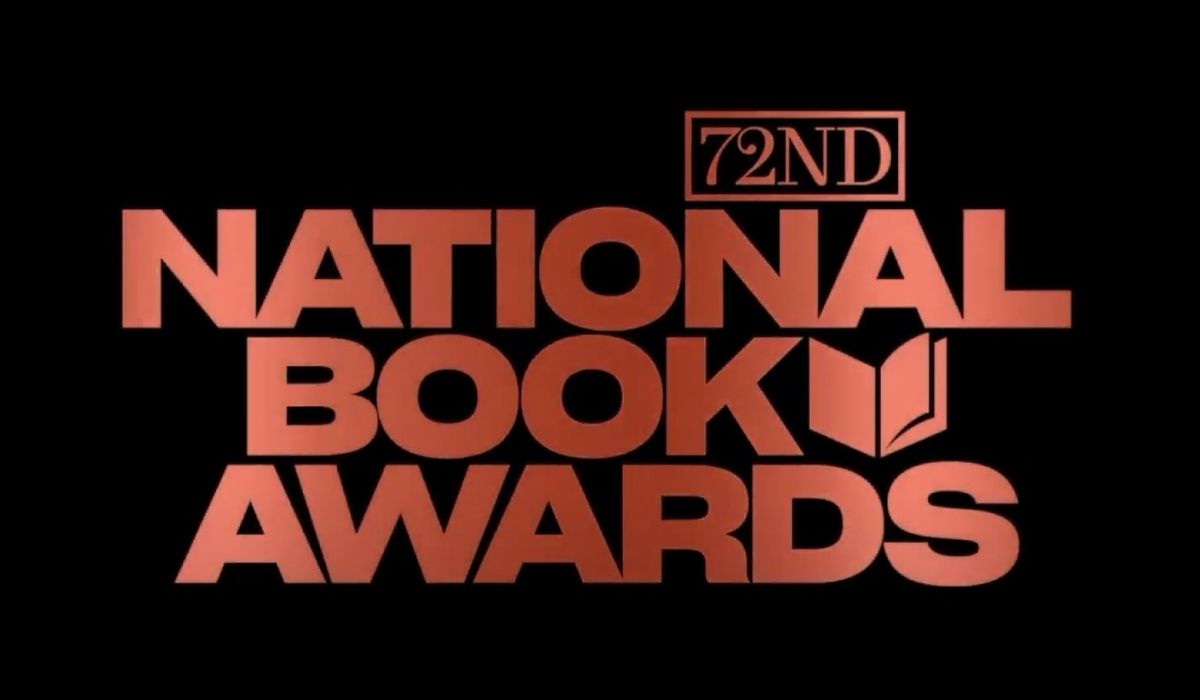

Hosted by writer and 1/2 of Two Dope Queens Phoebe Robinson, last week, the National Book Awards held their 72nd award ceremony. In general writing (not specific to a genre) The National Book Award sits alongside The Booker Prize and a Nobel Prize in Literature among the most prestigious of awards. Founded in the 1950s, the awards have recognized some of the most influential writers in literature, from Toni Morrison and Stephen King to, more recently, Elizabeth Acevedo, Jesymn Ward, and Kacen Callender.
Held virtually to curb the spread of the COVID-19 pandemic (and a win for greater accessibility), the event announced winners in the five categories of fiction, non-fiction, poetry, translated work, and young people’s literature. Also recognized for Distinguished Contribution to American Letters was the author of Sansei and Sensibility and Brazil-Maru, Karen Tei Yamashita. Additionally, Nancy Pearl won the Literarian Award (the other lifetime achievement accolade) for expanding access to reading and writing.
The art. The chairs. National Book Award lifetime achievement honoree. 10/10 #karenteiyamashita pic.twitter.com/y29Lm2HpI4
— Room Rater (@ratemyskyperoom) November 19, 2021
Here are the other winners and finalists this year:
Fiction — Hell of a Book by Jason Mott
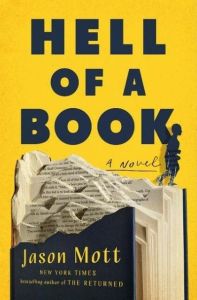
(Image: Random House.)
Mott’s story threads three narratives in an inventive way that explores new money, the way fame interacts with art, family, and what it means to be Black in America. The main “character” is an author on a book tour, and the narrative switches between a character named Soot from their bestselling novel and a child (that may not be real) following the author on tour.
Holy shit! We won it! We won the National Book Award!!!
— Jason Mott (@JasonMott) November 18, 2021
Runners-Up: Cloud Cuckoo Land by Anthony Doerr, Matrix by Lauren Groff, Zorrie by Laird Hunt, and The Prophets by Robert Jones, Jr.
Non-fiction — All That She Carried: The Journey of Ashley’s Sacks, a Black Family Keepsake by Tiya Miles
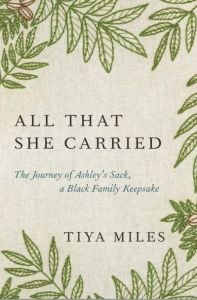
(Image: Random House.)
All That She Carried traces the history of a small sack, given by an enslaved mother in the 1850s to her recently sold young daughter, to the present. The book explores what a combination of stories and passed down objects can and can’t tell us about the history of this story.
In addition to the anthropological elements, Miles unpacks the metaphorical and invaluable elements of these objects. Historian Tiya Miles gives us a narrative, object history, and social history of this family and relates it to the wider shared experience of Black Americans through and after slavery.
Tiya Miles wins the National Book award! Congratulations Tiya! Thanks to Nicole Fleetwood for the priceless screen shot! pic.twitter.com/q7Aibws9DS
— Martha S. Jones, JD, PhD (@marthasjones_) November 18, 2021
Runners-Up: A Little Devil In America: Notes in Praise of Black Performance by Hanif Abdurraqib, Running Out: In Search of Water on the High Plains by Lucas Bessire, Tastes Like War: A Memoir by Grace M. Cho, and Covered with Night: A Story of Murder and Indigenous Justice in Early America by Nicole Eustace.
Poetry — Floaters by Martín Espada
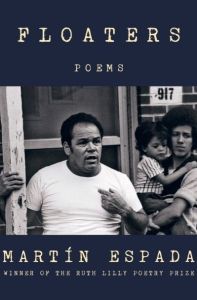
(Image: W. W. Norton & Company.)
A confrontation of a derogatory phrase used by U.S. Border Patrol agents upon finding a body of a drowned migrant who attempted to cross a river, Espada’s words process the anti-immigrant bigotry over the recent past and present.
Using observational commentary, Floaters’ poems vary in style and in tone. Some look at the most disgusting elements of immigrant hate to the microaggressions that build over time. Espada also reflects on the visionaries that rebelled in the hope for a better future.
Congratulations to Martín Espada the 3rd Latinx Poet to win the National Book Award. We couldn’t be prouder. Please join us in celebrating 🎉 https://t.co/2YnKYTqLdv
— Latinx in Publishing (@LatinxinPub) November 18, 2021
Runners-Up: What Noise Against the Cane by Desiree C. Bailey, Sho by Douglas Kearney, A Thousand Times You Lose Your Treasure by Hoa Nguyen, and The Sunflower Cast a Spell to Save Us from the Void by Jackie Wang.
Translated Literature — Winter in Sokcho by Elisa Shua Dusapin and translated by Aneesa Abbas Higgins
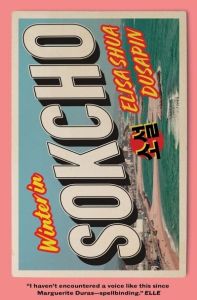
(Image: Open Letter.)
A young French Korean woman works as a receptionist at a guest house in a rural town bordering North and South Korea. When a French cartoonist checks in unexpectedly, looking for inspiration in the Korean countryside, they begin an uneasy relationship. Her fears over his insistence on seeing “real” Korea are confirmed when they accidentally cross into North Korea.
The short book touches on themes of identity, rural life, and intimacy.
🎉 CONGRATULATIONS to ALTA member @aneesa50abbas on winning the 2021 @nationalbook Award for Translated Literature for her translation from French of WINTER IN SOKCHO by Elisa Shua Dusapin, published by @open_letter! https://t.co/A46uHzAt0H pic.twitter.com/m8pNbtYw8J
— American Literary Translators Association (ALTA) (@LitTranslate) November 18, 2021
Runners-Up: Peach Blossom Paradise by Ge Fei and translated by Canaan Morse, The Twilight Zone by Nona Fernández and translated Natasha Wimmer, When We Cease to Understand the World by Benjamín Labatut and translated by Adrian Nathan West, and Planet of Clay by Samar Yazbek and translated by Leri Price.
Young People’s Literature — Last Night at the Telegraph Club by Malinda Lo
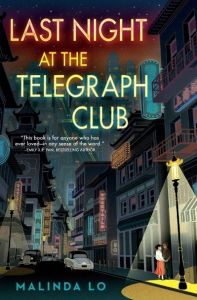
(Image: Dutton Books for Young Readers.)
Two young women in the 1950s find solace in being themselves when they discover the Telegraph Hotel—a lesbian bar. While this place serves as a place to be themselves, the real world threatens their happiness. In addition to the Red Scare, Lily Hu is worried about the deportation of her father, even though he just got his citizenship.
Well, LAST NIGHT AT THE TELEGRAPH CLUB has won the National Book Award in Young People’s Literature! I am overwhelmed and overjoyed and still stunned. Here is the text of my acceptance speech, which I tried to read on camera but probably didn’t follow exactly bc 😭 pic.twitter.com/i53TxyPHEK
— Malinda Lo (@malindalo) November 18, 2021
Runners-Up: The Legend of Auntie Po by Shing Yin Khor, Too Bright to See by Kyle Lukoff, Revolution in Our Time: The Black Panther Party’s Promise to the People by Kekla Magoon (which made our gift guide!), and Me (Moth) by Amber McBride.
(featured image: screencap)
The Mary Sue may earn an affiliate commission on products and services purchased through links.
Want more stories like this? Become a subscriber and support the site!
—The Mary Sue has a strict comment policy that forbids, but is not limited to, personal insults toward anyone, hate speech, and trolling.—
Have a tip we should know? [email protected]
